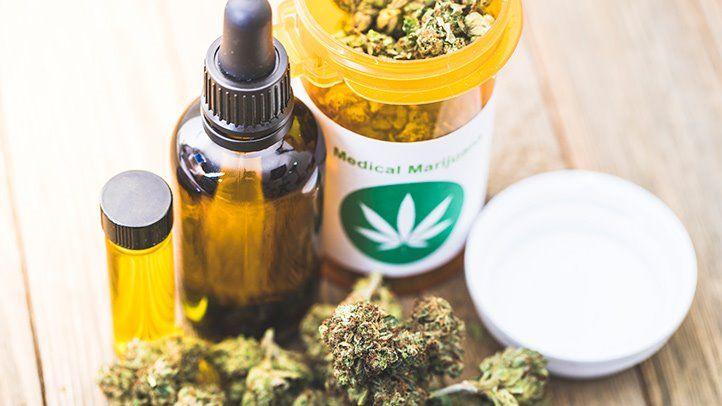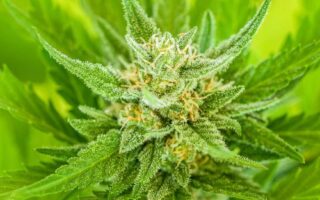Is Weed a Medicine? Unpacking the Green Enigma
In a world where the boundaries of traditional medicine are constantly being redefined, one green contender continues to spark fierce debate: cannabis. Revered for its long history of use in ancient healing practices, yet often stigmatized as a recreational drug, the question looms large—can marijuana truly be classified as a medicine? As the waves of legalization roll across the globe, more individuals and healthcare professionals alike are exploring the potential therapeutic benefits of this versatile plant. From alleviating chronic pain to managing anxiety and nausea, the conversation surrounding cannabis is as complex as the compound itself. Join us as we navigate the intricate landscape of medicinal marijuana, sifting through scientific research, personal anecdotes, and the evolving cultural attitudes that shape our understanding of this multifaceted herb.
Table of Contents
- Exploring the Therapeutic Potential of Cannabis
- Understanding the Science Behind Cannabinoids
- Evaluating Legal and Ethical Considerations in Medical Use
- Navigating Patient Experiences and Recommendations for Use
- Q&A
- In Conclusion
Exploring the Therapeutic Potential of Cannabis
The use of cannabis for therapeutic purposes has gained significant attention in recent years, igniting debates surrounding its efficacy and legality. Research suggests that certain compounds found in cannabis, such as cannabinoids and terpenes, may offer various health benefits. Some of the conditions that have shown potential responsiveness to cannabis treatment include:
- Chronic pain relief
- Reduction of anxiety
- Management of seizure disorders
- Improvement of sleep disorders
Despite ongoing research, the complexity of cannabis biology means that responses can vary dramatically among individuals. For patients considering cannabis as part of their treatment plan, it is essential to consult health professionals. This ensures safe usage and optimal dosing strategies tailored to each person’s unique physiology. Below is a brief comparison of commonly studied cannabis compounds that contribute to their therapeutic effects:
| Compound | Potential Benefits | Common Uses |
|---|---|---|
| CBD (Cannabidiol) | Anxiety reduction, anti-inflammatory | Epilepsy, chronic pain |
| THC (Tetrahydrocannabinol) | Pain relief, appetite stimulation | HIV/AIDS, cancer treatment |
| CBN (Cannabinol) | Sleep aid, anxiety relief | Insomnia, stress |
Understanding the Science Behind Cannabinoids
The world of cannabinoids is rich and complex, intricately tied to our biological systems. Cannabinoids are chemical compounds found in cannabis plants, with the most studied being Δ9-tetrahydrocannabinol (THC) and cannabidiol (CBD). These compounds interact with the endocannabinoid system (ECS) in our bodies, which plays a pivotal role in regulating various physiological processes such as mood, memory, pain, and appetite. This intricate dance between cannabinoids and the ECS can help explain why some individuals experience significant therapeutic benefits from cannabis use. Research indicates that cannabinoids can mimic the body’s own endocannabinoids, enhancing or modulating their effects for improved health outcomes.
Among the diverse array of cannabinoids, it’s essential to note their distinct properties and potential medicinal benefits. A few notable cannabinoids include:
- THC: Known for its psychoactive effects, it has been shown to alleviate pain, nausea, and stimulate appetite.
- CBD: Non-psychoactive, this cannabinoid may help reduce anxiety, inflammation, and seizures.
- CBC: Emerging research suggests potential anti-inflammatory and antidepressant effects.
- CBG: Known for potential neuroprotective properties and antibacterial effects.
Exploring how these cannabinoids interact with receptors in the ECS illuminates the therapeutic potential of cannabis. The table below summarizes the primary cannabinoids and their associated therapeutic effects:
| Cannabinoid | Primary Effects |
|---|---|
| THC | Pain relief, appetite stimulation, anti-nausea |
| CBD | Anxiety reduction, anti-inflammatory, seizure control |
| CBC | Anti-inflammatory, potential antidepressant |
| CBG | Neuroprotection, antibacterial |
Evaluating Legal and Ethical Considerations in Medical Use
As the conversation surrounding the medicinal use of cannabis continues to grow, it is essential to delve into the legal and ethical frameworks that govern its application. Variances in state and federal laws often create a complex landscape for both practitioners and patients. In jurisdictions where medical cannabis is permitted, the definitions of qualifying conditions, legal dosages, and licensing requirements can differ significantly. This inconsistency raises questions about how we define medicine and emphasizes the need for standardized regulations to protect both patients and healthcare providers. The potential for misuse of cannabis and the disparity in access to medical cannabis programs also underscores the ethical obligations of the medical community.
Furthermore, ethical considerations extend beyond legality; they encompass the responsibilities inherent in recommending and prescribing medical cannabis. Among the crucial points to consider are:
- Informed consent: Patients should be fully aware of the therapeutic benefits and potential risks.
- Equity: Ensuring equitable access to medicinal cannabis across diverse populations.
- Research integrity: Encouraging more comprehensive studies on the efficacy of cannabis for various medical conditions.
In examining these facets, we must address the balance between personal autonomy and public health safety. The ongoing debate emphasizes the need for thoughtful discourse as we navigate the convergence of law, ethics, and patient care in the evolving landscape of medicinal cannabis.
Navigating Patient Experiences and Recommendations for Use
As the conversation around cannabis and its medicinal properties continues to grow, patients navigating their experiences often report a mixed bag of outcomes. For some, cannabis can alleviate symptoms associated with chronic pain, anxiety, and insomnia, leading to improved quality of life. However, the variability in patient responses cannot be overlooked. Individual factors such as dosage, strain, and method of consumption play significant roles in determining efficacy. Understanding personal needs and preferences is essential for patients to derive maximum benefit from cannabis.
Recommendations for use often emphasize the importance of a graduated approach. Many healthcare professionals suggest the following strategies for patients considering cannabis for medicinal purposes:
- Start Low, Go Slow: Initiate treatment with a low dosage and gradually increase it.
- Consult a Professional: Collaborate with a healthcare provider familiar with medical cannabis.
- Keep a Journal: Track experiences, effects, and side effects to assess efficacy.
For those interested in specific strains, a simple reference table can illustrate popular options and their reported effects:
| Strain Name | Primary Effects |
|---|---|
| Indica | Relaxation, Pain Relief |
| Sativa | Energy, Focus |
| Hybrid | Balanced Effects |
| CBD-rich | Anxiety Relief, Anti-inflammatory |
Q&A
Q&A: Is Weed a Medicine? Exploring the Health Implications of Cannabis
Q1: What exactly is medicinal cannabis?
A1: Medicinal cannabis refers to the use of the cannabis plant and its constituents for therapeutic purposes. This includes various forms, such as oils, tinctures, capsules, and even whole-plant forms. The primary compounds involved are cannabinoids, particularly THC (tetrahydrocannabinol) and CBD (cannabidiol), which interact with the body’s endocannabinoid system to produce various physiological effects.
Q2: What conditions are commonly treated with medicinal cannabis?
A2: Research and clinical use have shown that medicinal cannabis may alleviate symptoms associated with a range of conditions. Commonly treated issues include chronic pain, anxiety, epilepsy, multiple sclerosis, and the side effects of chemotherapy such as nausea and loss of appetite. However, the effectiveness can vary from person to person.
Q3: Is there scientific evidence supporting cannabis as a medicine?
A3: The landscape of scientific research on medicinal cannabis is multifaceted. While there is a growing body of evidence indicating its efficacy for certain conditions (especially chronic pain and nausea), rigorous clinical trials are still needed for many other uses. Agencies like the FDA and WHO recognize the need for more controlled studies to clarify the potential benefits and risks.
Q4: How does cannabis interact with traditional medicine?
A4: Cannabis can interact with traditional medications, much like any other substance. For instance, it may alter the metabolism of some drugs, potentiating or diminishing their effects. This underscores the importance of consulting healthcare providers before starting any cannabis regimen, particularly for individuals on other medications.
Q5: What are the potential risks of using cannabis as medicine?
A5: While many individuals report relief from symptoms, the use of cannabis is not without risks. Potential side effects can include dizziness, cognitive impairment, and dependence. Furthermore, the psychoactive effects of THC can be troubling for some users. Thus, the decision to use cannabis should involve careful consideration and discussion with a medical professional.
Q6: What’s the legal status of medicinal cannabis?
A6: The legal status of medicinal cannabis varies widely across the globe. In some countries and states, it is legally obtainable with a prescription, while in others, it remains prohibited. This patchwork of laws can complicate access for patients seeking relief through this avenue.
Q7: How do patients typically access medicinal cannabis?
A7: Accessing medicinal cannabis typically involves obtaining a recommendation or prescription from a licensed healthcare provider. Once approved, patients can usually purchase cannabis through licensed dispensaries. The requirements and processes vary significantly based on jurisdiction and local regulations.
Q8: What is the future of medicinal cannabis?
A8: The future of medicinal cannabis appears promising as public opinion shifts and research continues to expand. With ongoing studies, we may see a clearer understanding of its therapeutic potential and more comprehensive guidelines for its use. As legislation evolves, patients may gain increased access to medicinal cannabis, elevating its place in healthcare practices.
Q9: Is cannabis the ‘miracle drug’ it’s often touted to be?
A9: While cannabis presents potential benefits, it’s essential to approach the ‘miracle drug’ notion with caution. Like all treatments, it may work wonders for some, while offering little to no relief for others. In the complex world of medicine, no single solution fits all; personalization remains key.
In the exploration of whether weed is a medicine, understanding, research, and dialogue will remain paramount as perceptions evolve alongside scientific discovery.
In Conclusion
In the ever-evolving landscape of medicine, the debate surrounding the medicinal properties of cannabis continues to spark curiosity and contention. As we navigate the complexities of research, regulation, and personal experiences, it becomes clear that the answer to “Is weed a medicine?” is not a simple yes or no. Instead, it invites us to explore a broader dialogue about the intersection of science, tradition, and individual wellness.
As we stand at the crossroads of informed choice and responsible use, it is crucial to approach this topic with an open mind and a discerning eye. With ongoing studies illuminating both the benefits and potential risks, the true role of cannabis in medicine may very well depend on the context of its use and the needs of the patient.
Ultimately, as the conversation forges ahead, one thing remains certain: the pursuit of understanding is a journey that requires not only robust scientific inquiry but also compassion and empathy for those seeking relief. As we close this chapter, let us continue to ask questions, seek evidence, and engage in meaningful discussions that will shape the future of cannabis in healthcare. The path to discovering the therapeutic potential of weed is still unfolding, and each voice added to the dialogue brings us closer to clarity.



